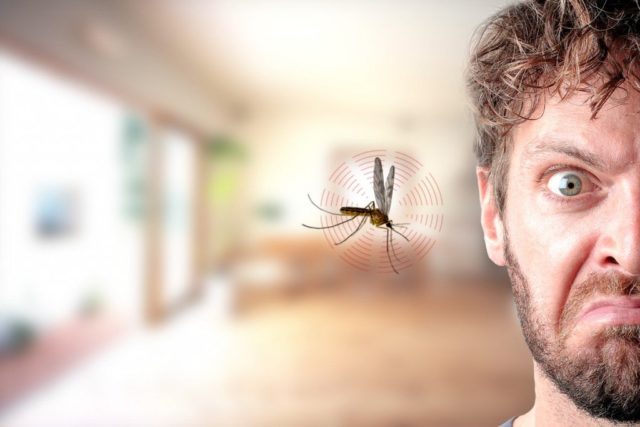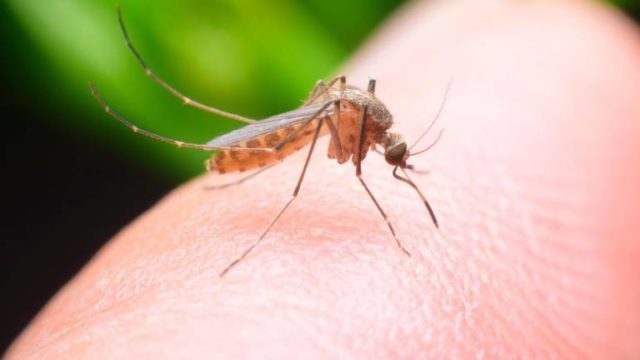When summer comes, mosquitoes arrive. Nothing ruins a perfect evening than its buzzing, which warns that a mosquito is looking for hot food. There are more than 3,000 species of these insects around the world, enough to spoil us all night, wherever we are.
These tiny insects are considered the deadliest animals in the world and contribute to more than 725,000 deaths a year. There are no other creatures, not even people, who are responsible for the loss of as many human lives each year as mosquitoes. Humans kill about 475,000 congeners every year. Snakes kill around 50,000, while dogs (mainly for rabies transmission) claim another 25,000 lives. Some of the most feared animals, such as sharks and wolves, kill less than 10. Can you believe it?
In a matter of mosquitoes, some of us are more wanted than others. If you hear the hum of a mosquito in any place where you meet more people, after a moment the insect will choose you as the priority objective of its lunch. That might lead you to ask yourself a couple of questions: why do mosquitoes buzz in the ears? Has it not learned that its annoying purr is immediately followed by an attempt -usually failed- to smash it? But above all; why do they choose you and not your tablemate, who should be more appetizing for them?
Even more, most times mosquitoes prefer you more than someone else. Later, we will explain why this “natural selection” made by them. And it is not a joke, but rather a serious matter.
Why do mosquitoes buzz?
Mosquitoes do not buzz to warn their victims but to get the attention of other partners willing to mate. They cannot help it. The only thing that happens is that when they spin around your head in search of a place to land and itch, their buzzing sounds louder.

What you can be sure of is that, although both sexes buzz, the one around him comes from a female. Males do not bite: they feed on nectar.
Both are needed for the usual: mating. Dr. Louis M. Roth, who dedicated his youth to studying, for the United States Army, yellow-fever transmitted by mosquitoes, published in 1948 an article in which, among many other curiosities about the Aedes aegypti mosquito, he realized that males ignored females whenever they rested in silence.
Of course, as soon as the girls took flight and buzzed, the males chased them frantically. The swarms of hundreds of males were calm until one female penetrated the swarm. As soon as the female is detected by the sound of her flight, the males rush to intercept her guided by the sound. Roth, who had plenty of imagination and time, discovered that the fiery males wanted to mate with the tape recorder that emitted recordings with female hums and even with tuning forks that vibrated on the same frequency.
In 2017, 2 Russian researchers offered overwhelming evidence about the exceptional role that sound plays in the life of mosquitoes, which is due to an organ discovered more than a century and a half ago by a Baltimore doctor, Christopher Johnston. Microscope in hand, Johnston discovered that they have an organ in their antenna (known since then with the little original name of Johnston’s organelle), which allows them to recognize the hum of other mosquitoes.
Johnston went to a better life without finding the mechanism that produced that noise. Among other things, because he did not look for him, convinced how he was that the trick was in changes in the vibration produced by modifications of the wing shake. Half a century passed before other scientists discovered exactly what causes the buzz. British entomologists Arthur E. Shipley and Edwin Wilson described, in 1905, a jagged organ located at the base of the wings that act as a ratchet and causes the sound when the wings move.
And why does it always bite you?
Let’s see why and how mosquito females select their victims. The key is in the invisible chemical landscape of the air around us.

Mosquitoes interpret this landscape through specialized behaviors and sensory organs capable of reading the subtle chemical traces that exude our bodies. Mosquitoes depend on carbon dioxide to find their guests. When we expel air from our lungs, carbon dioxide does not immediately mix with air. It stays temporarily in effluviums that mosquitoes follow like the rats to the Pied Piper of Hamelin -one of the most popular children’s stories in many parts of the world.
Mosquitoes perceive these effluviums and, as the hounds do, pursue the trail as they perceive higher concentrations than those contained in normal ambient air. By tracking carbon dioxide (CO2), mosquitoes can locate targets located up to 50 meters away.
Well, now the mosquito that is going to bite you has located the group in which you, its auspicious victim, is. Things begin to be customized when the mosquito is approximately 1 meter from the group of potential targets.
At close range, mosquitoes take into account a large number of factors that vary from person to person, including skin temperature, the presence of water vapor and the color of clothing. Scientists believe that the most important variables on which mosquitoes are based when choosing a specific person are the chemical compounds produced by the colonies of microbes that live in our skin. Bacteria convert the secretions of our sweat glands into volatile compounds that are captured by the olfactory system located in the antennae of mosquitoes. These complex chemical compounds – more than 300 – vary from person to person depending on their genetics and environment.
According to an article published in the scientific journal PLUS ONE, people with a greater diversity of microbes in the skin tend to have fewer mosquito bites. The subtle differences in the composition of chemical effluvium produced by different colonies of skin bacteria can explain the large differences in the number of bites.
As we cannot control the microbiomes of our skin, we can do little except avoid dressing in black, because mosquitoes love that color. Given this revelation, the best we could do next summer is to wear yellow.

